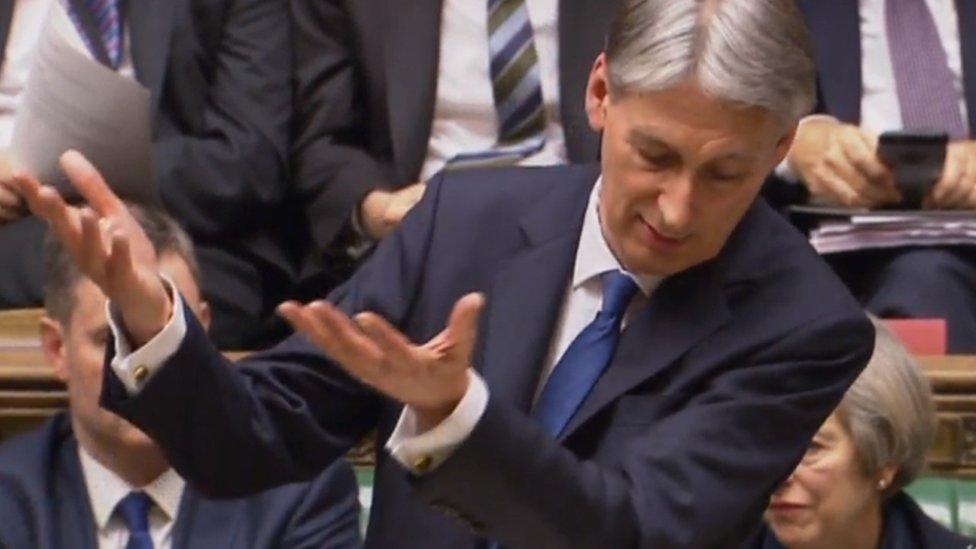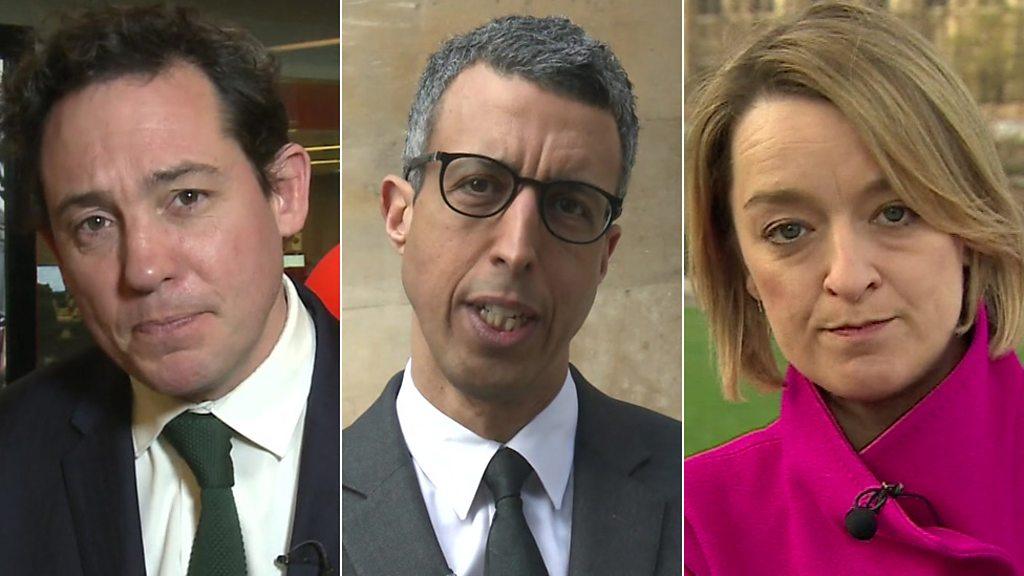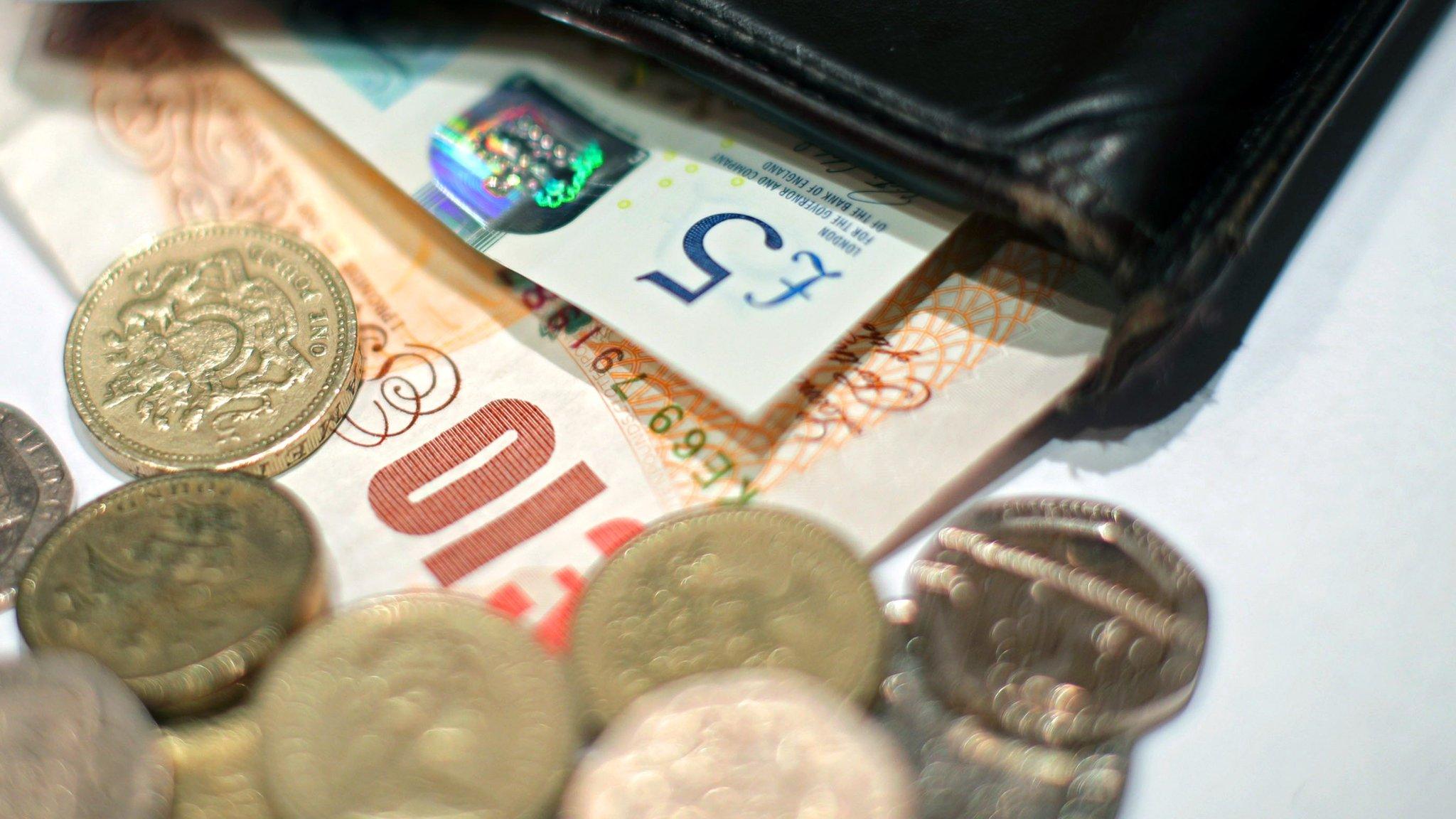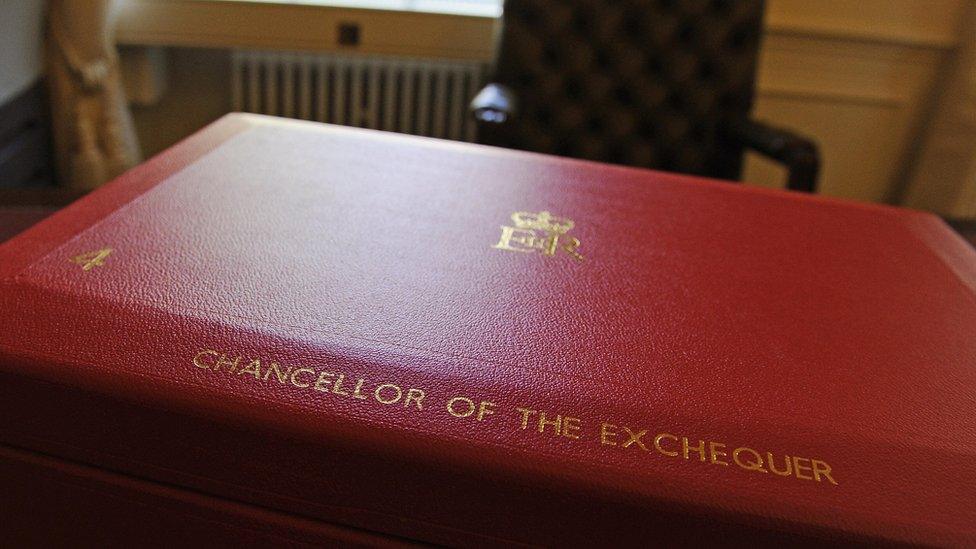'Spreadsheet Phil' gives cautionary tale
- Published

For his first and last spring Budget, Philip Hammond did seem to have a spring in his step.
He smiled as he held the red box aloft in Downing Street, knowing that inside his Budget speech painted a better picture of the public finances than had been previously predicted.
In the House of Commons, his first sentence from the despatch box described an economy that had "confounded commentators" with its "robust growth".
But despite the chancellor's confident demeanour through a speech littered with jokes and jibes at Labour, this was a Budget steeped in caution.
'Uncertainty ahead'
Borrowing figures were better than expected, but the UK still has a hefty deficit, so true to his nickname "spreadsheet Phil" wasn't prepared to splash the cash.
He brushed off the suggestion that lower borrowing made the case for more spending and spoke of the need for responsibility.


He might have relaxed the rules set by his predecessor around eliminating the deficit, but Mr Hammond made the case for balancing the books and placing the economy on a "strong and stable" platform ahead of Brexit.
The UK's impending departure from the EU was barely mentioned, but undoubtedly shaped this Budget.
Self-employed targeted
With Brexit negotiations approaching, the chancellor was keen to keep any financial flexibility to one side in preparation for the uncertainty ahead.
Giveaways were followed by takeaways; measures to help businesses facing hefty rate rises preceded a rise in National Insurance contributions for the self-employed.
There were echoes of George Osborne when the chancellor spoke of the need for a strong economy in order to improve the lot of ordinary working people, as the prime minister has long promised.
But while his speech was heavy on rhetoric, it wasn't packed full of announcements compared to budgets of the past.
Mr Hammond's self-imposed economic restraint was designed to reassure, but Labour called it complacent, criticising the lack of investment in key public services or measures to raise living standards.
And while the government wants to portray confidence about the Brexit process, the chancellor's caution shows he's not entirely convinced there won't be some bumps in the road.
- Published7 March 2017

- Published7 March 2017
- Published7 March 2017

- Published7 March 2017
